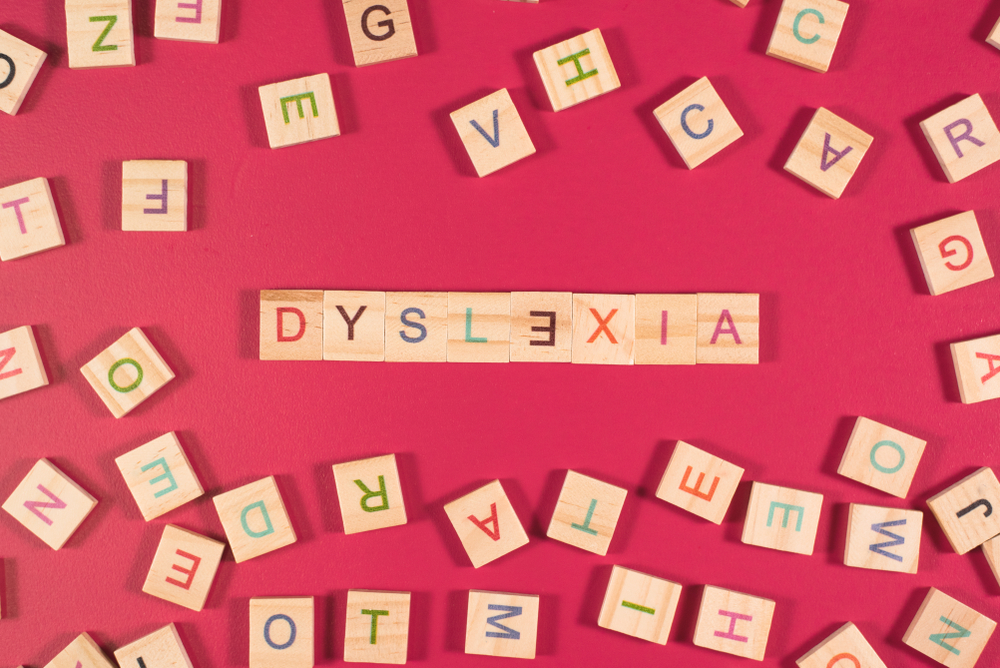Building vocabulary Normal Worksheets for Ages 6-9
4 filtered results
-
From - To
Discover a fun and engaging way to enhance your child's vocabulary with our "Building Vocabulary Normal Worksheets" designed for ages 6-9! These worksheets offer a variety of exercises that promote word recognition, meaning, and usage in everyday contexts. Perfect for early grade learners, each activity is crafted to encourage creativity and critical thinking. Interactive tasks, such as matching words to definitions and fill-in-the-blank exercises, make learning enjoyable. Equip your child with essential language skills that support their reading and writing abilities. Start their vocabulary-building journey today with our comprehensive, easy-to-follow resources tailored just for them!
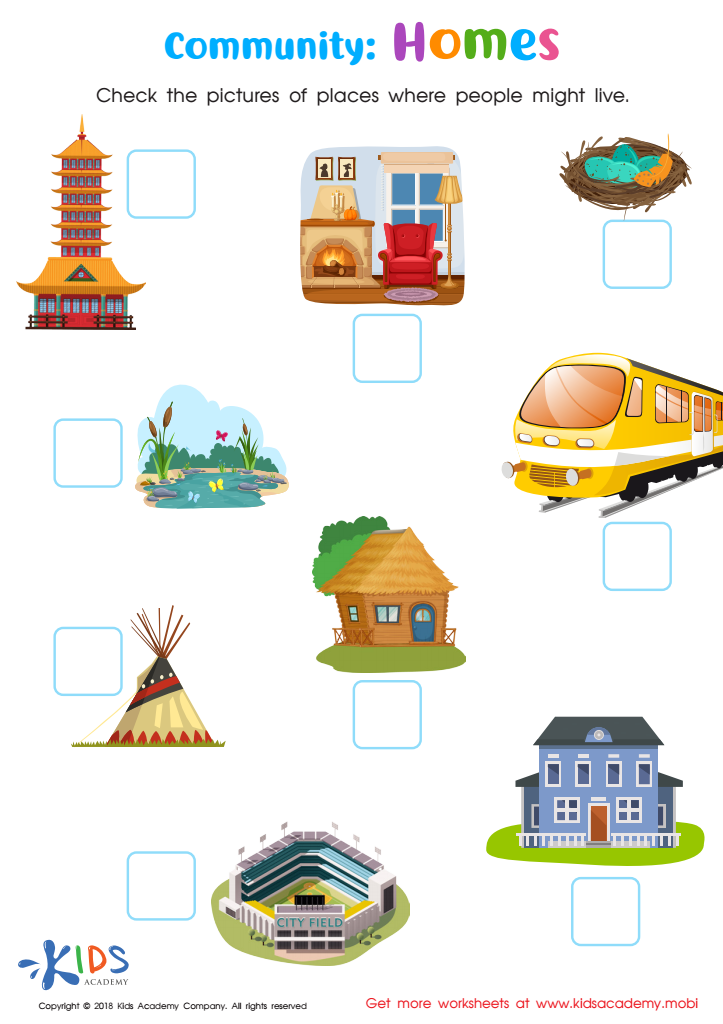

Community: Homes Worksheet
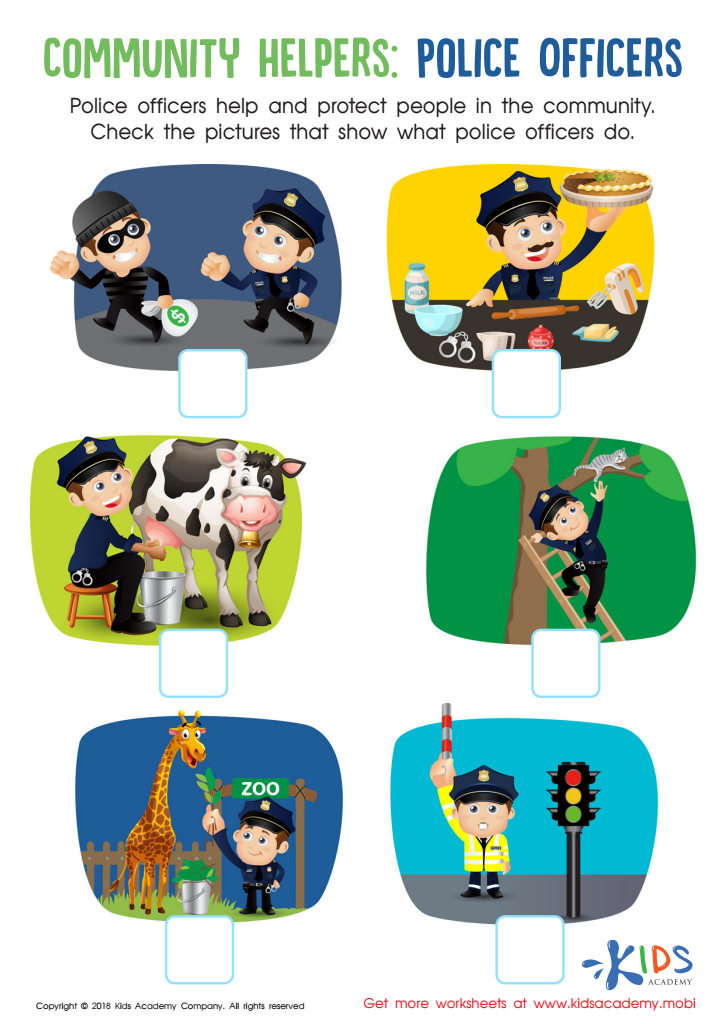

Police Officers Community Helpers Worksheet
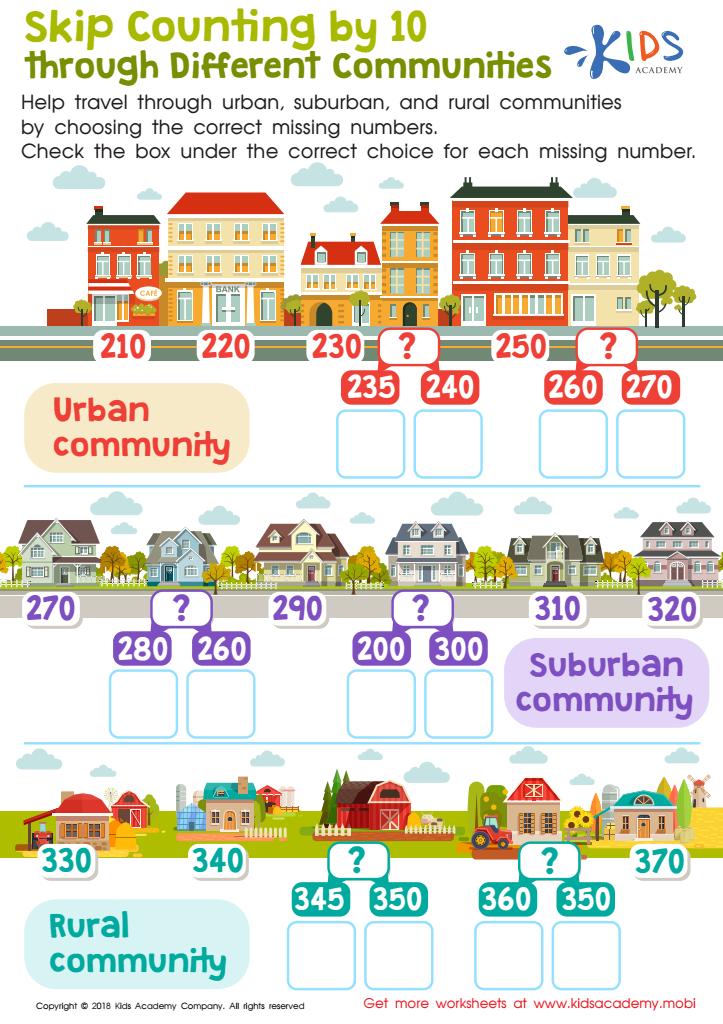

Skip Counting by 10 through Different Communities Worksheet
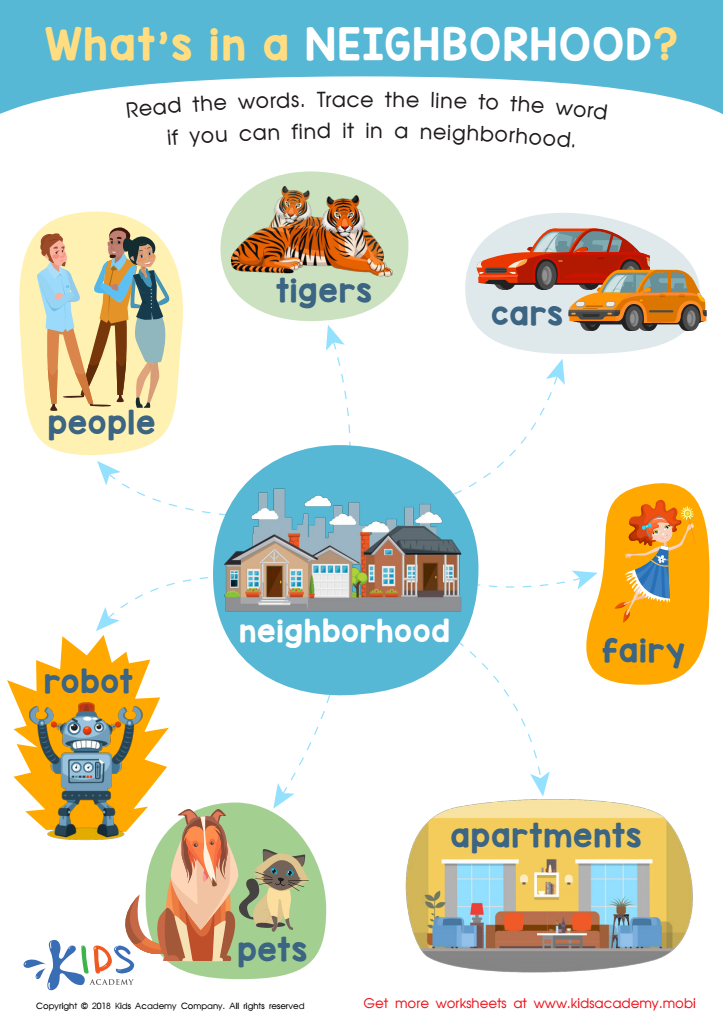

What's in a Neighborhood? Worksheet
Building vocabulary for children aged 6-9 is crucial for their overall development and success in school and beyond. This age is a key period when children expand their linguistic abilities, and robust vocabulary knowledge directly impacts their comprehension and communication skills. By enhancing vocabulary, children can better understand what they read, allowing them to engage more deeply with texts and concepts across subjects.
Parents and teachers play an essential role in fostering this development. A rich vocabulary enables children to express their thoughts and feelings clearly, which boosts their confidence in social interactions and academic settings. Additionally, vocabulary growth is linked to critical thinking and problem-solving skills, as children learn to articulate ideas and inquire thoughtfully about the world around them.
Moreover, a well-developed vocabulary supports academic achievement. Studies show that strong vocabulary correlates with higher reading proficiency, which is foundational for learning across all disciplines. For parents and teachers, actively participating in vocabulary-building activities—such as reading aloud, encouraging conversations, or playing word games—creates a nurturing environment that champions language development. Ultimately, investing in vocabulary-building strategies contributes to children's long-term educational success and enriches their lives.
 Assign to My Students
Assign to My Students





